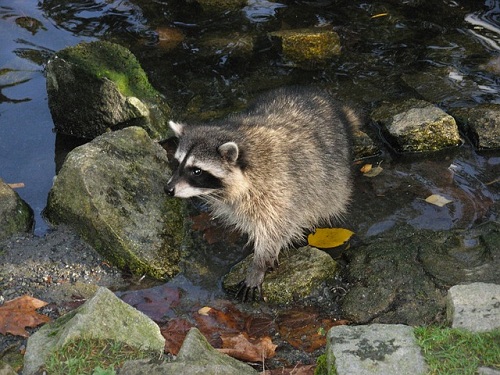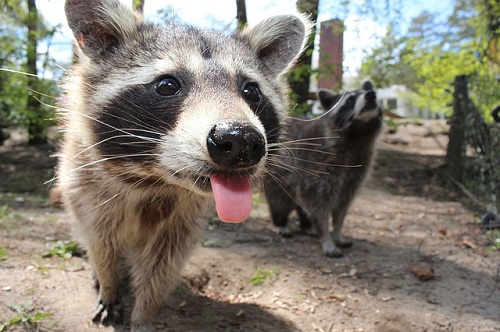Raccoons may look cute and non-threatening, but these animals can transfer potentially fatal diseases through their bodily waste, bites, or scratches.
Infectious diseases that raccoons can carry and spread
Raccoon Roundworm
Raccoons can spread roundworm eggs through their droppings. These eggs are light and can become airborne. Humans easily inhale the eggs and become infected. Left untreated, roundworm can affect vital organs and may cause death of the host. Raccoon roundworm can result in:
- Exhaustion
- Loss of muscle control
- Lack of coordination
- Loss of vision
- Coma
Leptospirosis
This bacterial infection is spread through raccoon urine and droppings. It can be contracted by humans and pets through open wounds or through direct contact with raccoon secretions. Leptospirosis manifests itself through:
- Change in behaviour/lack of vigour
- Nausea and vomiting
- Diarrhea
- Severe head and muscle aches
- High fever
- Anemia
- Meningitis
- Kidney and liver failure
Salmonella
Salmonella is found in and spread through raccoon feces. Humans can catch this disease through incidental ingestion by transferring the microorganisms from hands to the mouth. Even when raccoons are taken off a property, the bacteria must be removed as well. These problems are signs of salmonella poisoning:
- High fever
- Severe diarrhea
- Abdominal pain
Rabies
Raccoons can carry this disease, and a bite or a scratch can easily affect humans and pets. Rabies could be potentially fatal if symptoms are ignored. If you need racoons removed, do not try to do so yourself, especially if they look weak or sick. Leave raccoon control to professionals.
- Loss of muscle control (as if drunk)
- Froth forming at the mouth
- Exhibiting violent behaviour
- Exhibiting an abnormal fear of humans
- Attacking inanimate objects or pets
If you have come into contact with a raccoon or its waste, seek the attention of a medical professional right away and then call a wildlife control company to prevent the animal from hurting other people or pets around your home. Liddle Rascals Wildlife can be contacted for raccoon removal in Ontario at (416) 356-5886.
If you have come into contact with a raccoon or its waste, seek the attention of a medical professional right away and then call a wildlife control company to prevent the animal from hurting other people or pets around your home.
Expert Raccoon and Wildlife Removal in the Greater Toronto Area
We are available 24 hours a day, seven days a week.
Call us at (416) 356-5886 or contact us online.







Leave a Reply
You must be logged in to post a comment.